Health & Medicine
-
 Neuroscience
NeuroscienceEven with rest, brain changes linked to football linger
The offseason may not allow enough time for football players' brains to heal from hard hits.
-
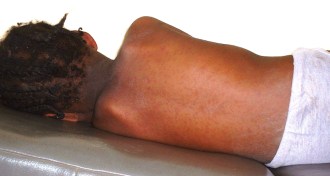 Health & Medicine
Health & MedicinePossible measles drug tests well in animals
Compound that saves ferrets from viral infection might someday lead to measles treatment.
By Nathan Seppa -
 Health & Medicine
Health & MedicineWhat’s going on in the mind of a Skyping baby?
By studying how young children respond to video calls, scientists hope to understand the role of new technology.
-
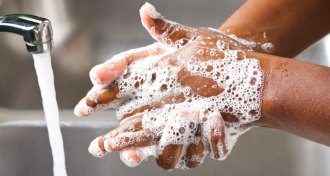 Health & Medicine
Health & MedicineTriclosan aids nasal invasions by staph
The antimicrobial compound triclosan, commonly found in soaps and toothpaste, may help Staphylococcus aureus stick around.
By Beth Mole -
 Health & Medicine
Health & MedicineHepatitis C treatment appears extremely effective
A mix of four medications has provided the most effective way to date to counter the hepatitis C virus in humans.
-
 Computing
ComputingApp could cut jet lag short
A new app calculates lighting schedules to help travelers adjust quickly to new time zones.
By Meghan Rosen -
 Life
LifeCommon lung infection suffocates with single protein
A Respiratory Syncytial Virus, or RSV, protein creates clumps of dead, bloblike lung cells.
By Beth Mole -
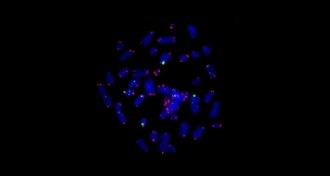 Health & Medicine
Health & MedicineChanges in kids’ genomes linked to chronic stress
In a study of 40 nine-year-old boys, kids from underprivileged backgrounds had telomeres that were 19 percent shorter than those of boys from more privileged environments.
-
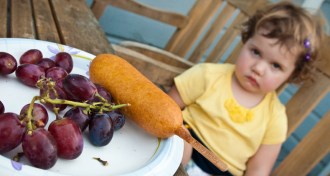 Health & Medicine
Health & MedicineIf your kid hates broccoli, try, try again
Repeated exposure to foods may be the antidote to picky eating.
-
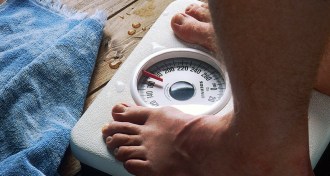 Humans
HumansFather’s obesity linked to autism in children
A father-to-be’s body mass may be a greater risk factor for his child’s development of autism than the body mass of the mother.
-
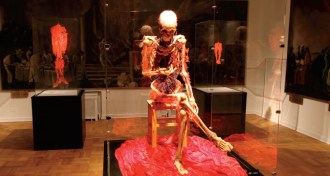 Health & Medicine
Health & MedicineSurgery museum holds wonders for the brave
Anatomical displays sit alongside art depicting medical history at the International Museum of Surgical Science.
By Sid Perkins -
 Earth
EarthScience can save lives, but only if society lets it
Society faces lots of problems that science can’t yet fix. But there are also plenty of cases in which scientists know enough to avert tragedy.
By Eva Emerson